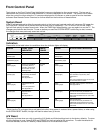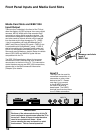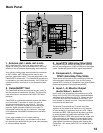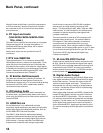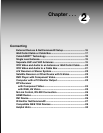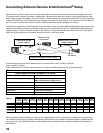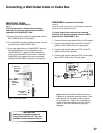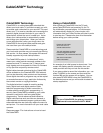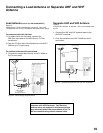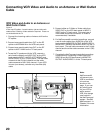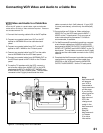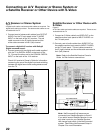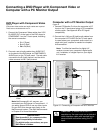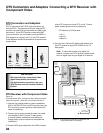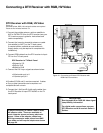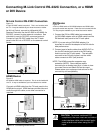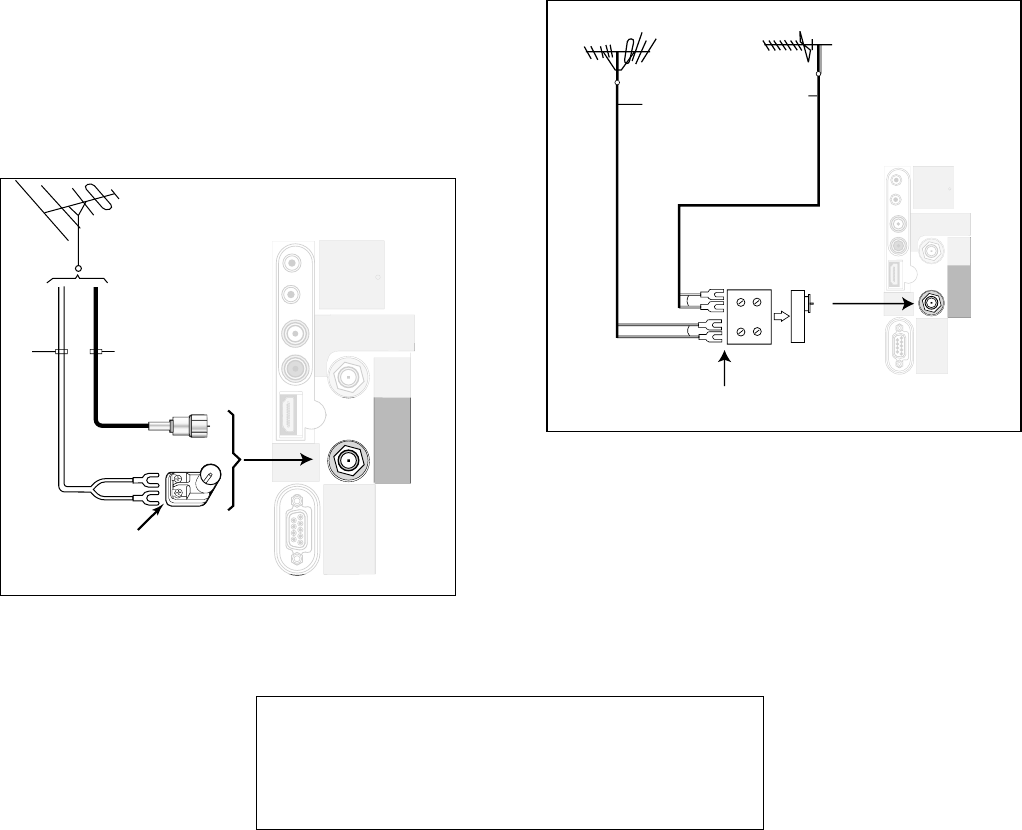
18
19
IREMITTER
NetCommand
R
DVI
AnalogAudio
DTV/
CABLE/
VHF/
UHF
ANT-2
AUX
ANT-1
MAIN
M-LINK
CONTROL/
RS-232C
HDMI
M-LINK
L
R
TV back panel section
300-Ohm
FlatTwin
Lead
Optional 300-Ohm
to 75-Ohm
Matching Transformer
75-Ohm
Coaxial
Cable
3.
2.
1.
Separate UHF and VHF Antenna
Figure 4
A UHF/VHF combiner is required. This is not included with
the TV.
1. Connect the UHF and VHF antenna leads to the
UHF/VHF combiner.
2. Push the combiner onto ANT-1 MAIN on the TV
back panel.
External
Antenna
orCable
Back
Side
FlatTwinLead
UHFAntenna
(Channels14-69)
VHFAntenna
(Channels2-13)
300Ohmto
75Ohm
Combiner
FlatTwinLead
UHF
VHF
1.
2.
IREMITTER
NetCommand
R
DVI
AnalogAudio
DTV/
CABLE/
VHF/
UHF
ANT-2
AUX
ANT-1
MAIN
M-LINK
CONTROL/
RS-232C
HDMI
M-LINK
L
R
TV back panel section
Figure 4. Connecting separate UHF and VHF Antennas
Connecting a Lead Antenna or Separate UHF and VHF
Antenna
Lead Antenna (not for use with CableCARD™)
Figure 3
A 300-Ohm to 75-Ohm transformer is required. This is not
included with the TV, but is available at most electronics stores.
For antennas with twin flat lead
1. For antenna with twin flat leads, connect the
300-Ohm twin leads to the 300-Ohm to 75-Ohm
transformer.
2. Push the 75-Ohm side of the transformer onto ANT-1
MAIN on the TV back panel.
For cable or antenna with coaxial lead
3. Connect the coaxial lead directly to ANT-1 MAIN on
the TV back panel.
Figure 3. Connecting a Single Antenna
Mitsubishi strongly recommends against using
antennas with twin flat leads. Twin flat lead
antenna wires are subject to interference which
may adversely affect the performance of the TV.
We recommend using coaxial antenna cable.



